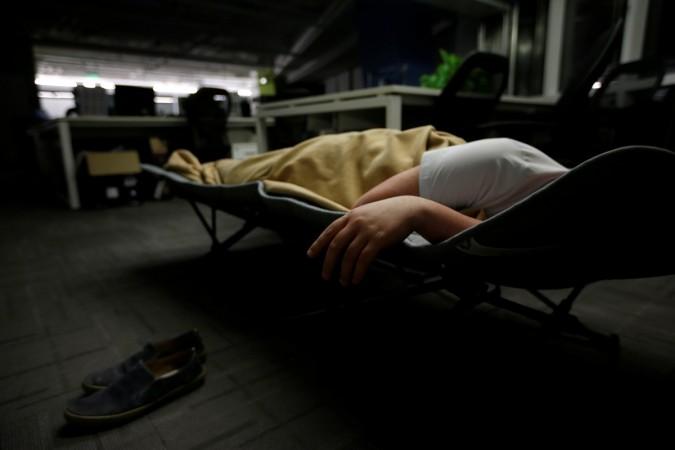
People who do not get sufficient sleep on a regular basis are more prone to loneliness and social isolation than those who get their recommended hours of restful sleep.
A new study from the University of California, Berkeley has found that people who suffer sleep deprivation, could fall into a cycle of loneliness that gets progressively worse as they start to alienate people around them. Results of the study, published this week, points out exactly how this works. The study used people who were awake and active through a night.
The idea was to get a clear image of how people behave in regards to social interactions when sleep deprived. Using a fMRI scanner, researchers wanted to know if the participants were moved to reach out and talk with their friends in search of comfort, or if they simply retreated into their shells.
Eti Ben-Simon, one of the researchers who co-authored the study, said to Inverse that, "I think what's counterintuitive is that when you lack sleep you might want more protection from society or be socially connected. Instead, we want to curl up into our nest, withdraw from society, and go to sleep."
Through several experiments, Ben-Simon and team demonstrated that this tendency to retreat away from social interaction has serious social consequences.
One of the first legs of the study was the "Panic Button"- a task assigned to sleep deprived participants. All they had to do was to hit a button to stop a video of a person with a neutral expression walking toward them. If they feel like the person in the video is walking too close toward them, they can hit the button and it stops. Sleep deprived people tend to hit the button up to 60 per cent earlier than when they ran the same test after they were well rested, say researchers.
After running a few more tests on the sleep-deprived people and recording all of them, the experiment was flipped around with researchers showing clips of sleepless people and ran an online poll to find out if these people desirable. Those who took part in the online study found the sleep deprived lot to be a lonely bunch of people and they also did not want to hang out with any of them.
It is this second leg of the experiment that truly revealed how the sleeplessness/ loneliness cycle gets more and more vicious self-sustaining.
"I think it's interesting that we're less likely to want to interact with someone if they're lonely," says Ben-Simon. "If we think about that, we are maybe more suspicious of their social skills. I think we view loneliness as a social defeat, and you try to keep away."
The study was first published in the journal Nature.

















